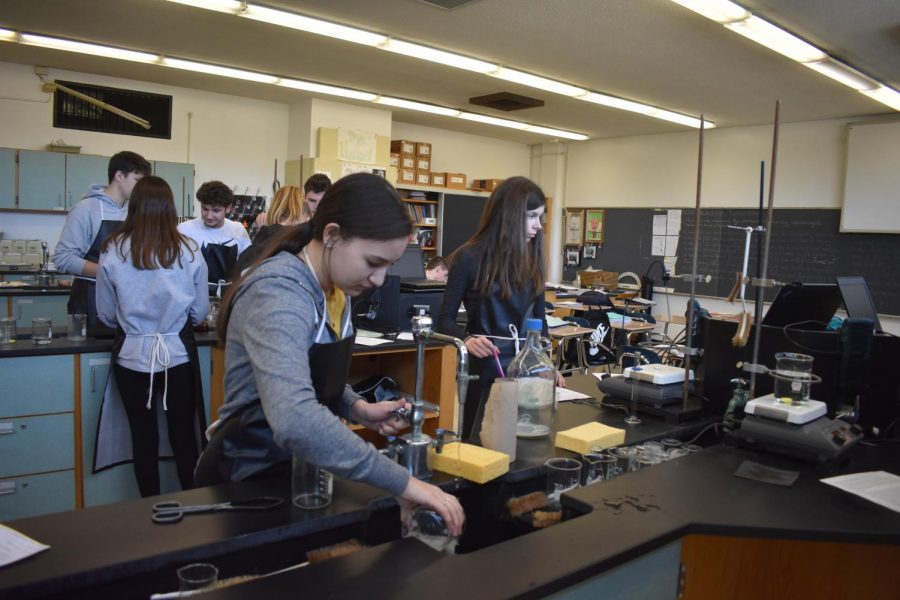Block scheduling to remain for 2019-2020 school year
Block scheduling has been a topic of discussion for the past few months. In February, the decision was made to not move forward with any significant schedule changes for the 2019-2020 school year.
The school day didn’t always run on a block schedule. It originated with a plan called Project 720, where a block schedule was suggested the same way the period is suggested now. Freedom was finding points that benefitted the direction that they wanted to head: towards project-based learning and improving the school district. This plan also included every student getting a laptop.
As a small school district, Freedom needs to utilize the resources it has. With the limited number of teachers here, it was important to find ways to benefit the students through them. Class time seemed to be a good place to start.
While searching for a way to create more opportunities for students, people disagreed with a schedule change at the high school. Students started signing a petition created by junior Cole Skuse.
Superintendent Jeffrey Fuller was also against switching to a period schedule for the 2019-2020 school year.
“More conversation needs to take place. In order for the betterment of the school, we have to look at more than just the schedule,” Fuller said.
Focus groups were made to aid in decision making, containing two groups of parents, one group of teachers and one group of students. When the meetings were held with the focus groups, no school board members, principals or superintendents were present to avoid any intimidation.
The feedback and data from this experiment was helpful. It was a great opportunity to hear people’s honest thoughts and take them into consideration.
At the school board meeting on Tuesday, March 5, the scheduling issue was addressed. Principal William Deal gave a presentation about how the school will navigate issues in the future.
“What we have to do now is look at our vision and establish how we can get there. We’re looking at what we hope to accomplish in the next three to five years and how we’ll get there. The solution may not be period scheduling, but it’s still an option,” Deal said.
The idea of a modified five-block schedule was discussed, but won’t be put into motion for a while, if at all. It would also affect Freedom’s start and end times. The day would start at 7:40 and end at 2:40.
The presentation focused on restructuring the committees and having them use a new process in making improvements or changes to the school. The committees plan to include middle school teachers as well. Deal also shared a fishbone diagram, which is a creative and in depth way to find solutions to problems.
The diagram starts with a fish, where at the tail end you write the problem. After continuing to ask ‘why’, you move through the bones of the fish. At the end is the underlying problem, which is the head. This leads to the core issue instead of symptoms, which makes working towards a solution easier.
Scheduling could just be a symptom, so the committees will continue digging until they find the core. The school board will be completing a needs assessment where they will review student data and examine processes, practices and routines. Lastly, they will analyze the root cause. All of this hard work has the goal of a better school behind it.



